TRAVELLERS from anywhere in the world, who can show they have been fully vaccinated against the coronavirus or have recently recovered from it, are now welcome to come to Spain under new rules introduced on June 7.
What’s changed?
For the first time in more than a year since the pandemic struck, a general travel ban on those arriving in Spain from outside the European Union has been lifted, although there are still a few exceptions.
The restrictions for those travelling within the EU-bloc have also been loosened for arrivals in Spain.
Which vaccines are recognised?
Visitors from any country (bar a few exceptions) are welcome as long as they can prove that they have been vaccinated fully with vaccines approved by the European Medicines Agency (EMA) or the World Health Organization (WHO).
This means they have had both doses of vaccine by Moderna, Pfizer-BioNTech, Oxford-AstraZeneca, Sinopharm and Sinovac-Coronavac or Johnson & Johnson vaccine that delivers full immunity in just one dose.
The new rules published on Saturday in the Official State Gazette (BOE) state that the jabs needed to have been administered at least 14 days prior to arrival in Spain.
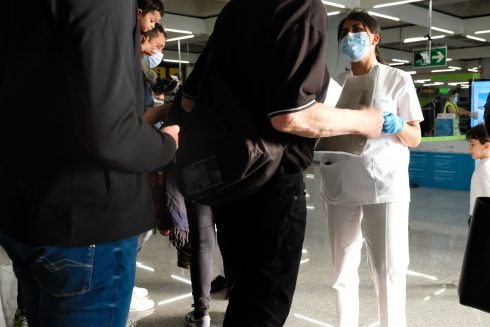
What about people who haven’t been vaccinated? Can they still come to Spain?
Yes. Those who haven’t been vaccinated are also welcome if they can demonstrate a negative test result from a SARSCoV2 diagnostic test or proof of recent recovery from COVID-19.
What are the exceptions?
Until now travellers from outside the European Union arriving from a ‘risk country’ were only allowed to with justified reason (such as work or study) or if they were a Spanish citizen or resident in Spain.
But from Monday June 7 the ban is restricted to those people arriving from “high risk countries” which currently include India, Brazil and South Africa.
Travel to Spain from these countries is still prohibited even for those who are fully vaccinated, because of fears of the spread of variants prevalent in those countries.
How have the rules changed for those within the EU?
The trial of the EU’s ‘covid-certificate’ has started in Spain and this means that under the new rules in place from June 7, travellers from other European Union countries, who were previously only able to enter Spain with proof of a negative PCR test taken within 72 hours, can now also show proof of immunity instead.
This can take the form of a vaccination certificate, proof that they have recently recovered from the virus or an antigen test to prove they are free of COVID.
These are quicker and less costly than the PCR test.
No restrictions:
Spain has removed the need for any requirements from a list of countries that it considers “low risk” which include the UK, Australia, New Zealand and Israel.
Travellers from the UK are already exempt from any restrictions including the need for a negative PCR and have been arriving since May 24.Spain, however, remains on the UK’s ‘amber list’ of travel destinations and those returning from any Spanish destination will have to undergo mandatory quarantine.
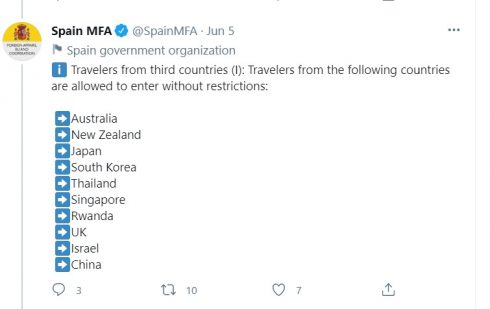
What do I need to know about the paperwork?
All certificates – whether proof of vaccine or recent recovery – must be in Spanish, English, French or German — or their equivalent translations in Spanish, the government order said.
All travellers are required to fill out the travel form available on Spain Travel Health (SpTH).
READ ALSO:
- Spain welcomes fully vaccinated international travellers from Monday
- LATEST: Spain removes UK from COVID-19 risk list and will allow travellers in from May 24 WITHOUT a PCR
- EXPLAINER: What Spain’s ‘amber’ classification on UK travel list means for travellers

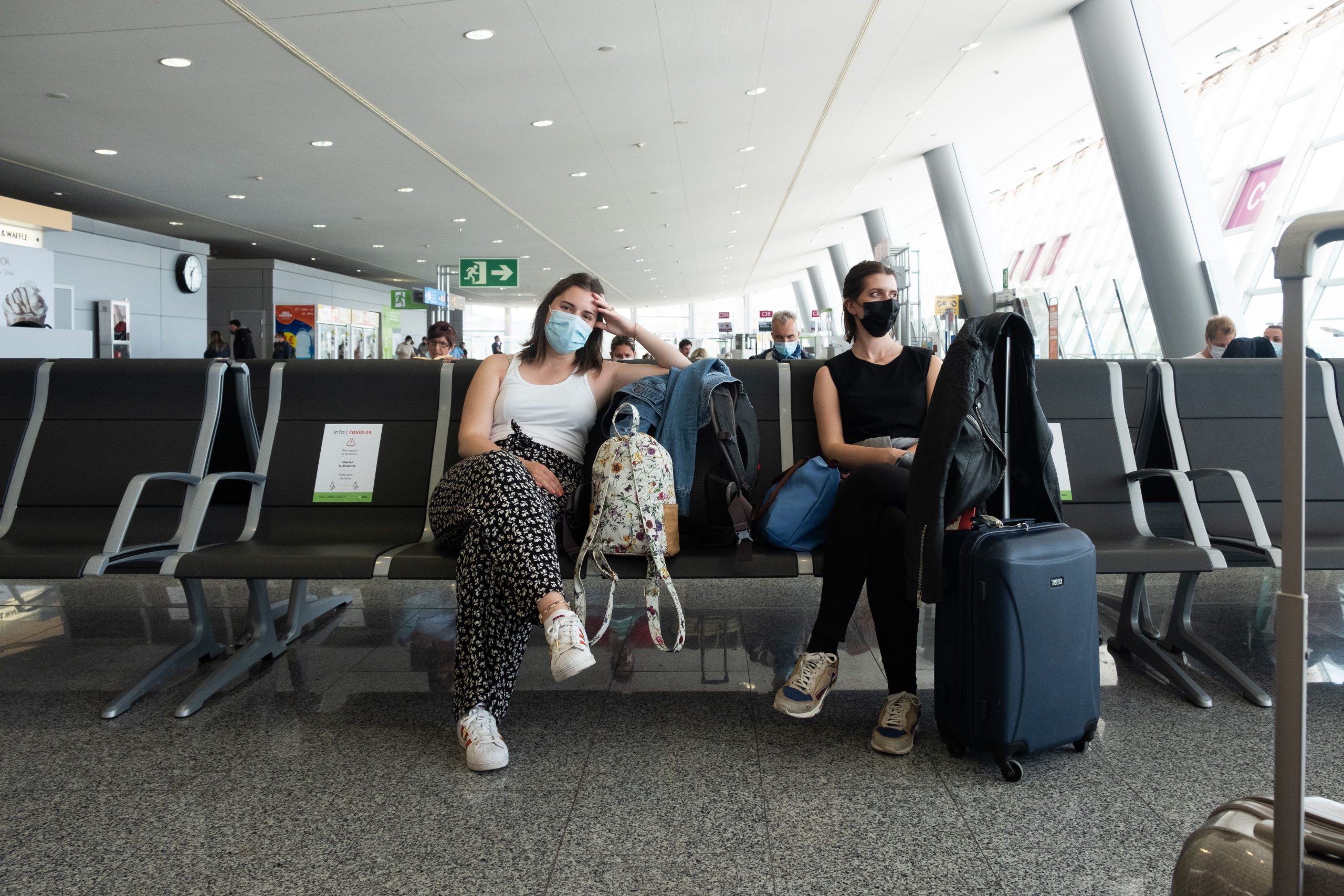
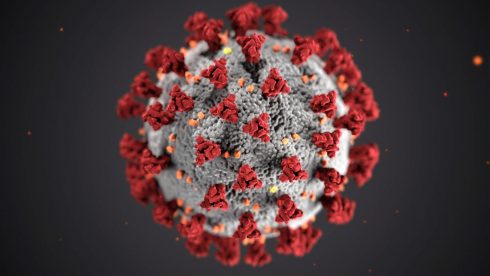


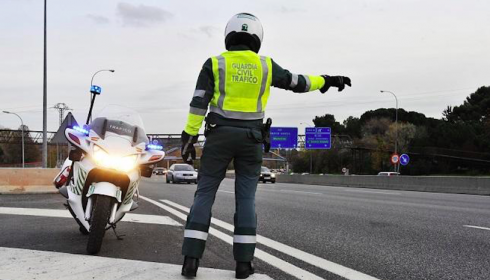

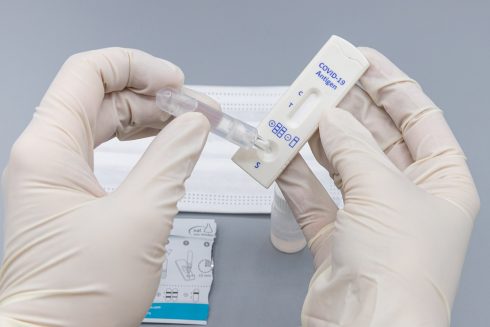
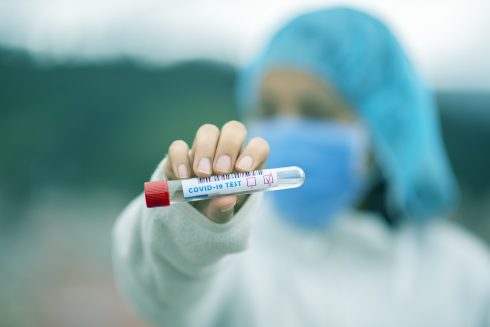



Unfortunately that’s not the whole truth. The rules being published for the SpTH travel form for travellers from the European Union clearly state that people who have been fully vaccinated have to demonstrate their vaccination status by the DIGITAL EU certificate while people from third countries are allowed to demonstrate their vaccination status in any readable form (i.e. the WHO vaccination passport). The digital EU vaccination certificate is still not available in the EU. For Germany it will be expected for some day in July. But there are no plans how to transfer the vaccination data from the WHO passport into the digital certificate for those 12 million Germans who have already been fully vaccinated today. Therefor vaccinated EU travellers who intend to travel to Spain in June are fully left in limbo whether they may enter Spain with their WHO vaccination passport.
While Spain now accepts Antigen tests besides PCR tests, the validity period has been reduced from 72 hours to 48 hours. A traveller who is flying on Monday morning, how may he manage a Antigen test not older than 48 hours??? And the accepted start date of the validity period is also left in limbo: Is it the date, when you had been tested or the date when you have gotten your test result? Normally the test certificate mentions the time of testing but not the time of publishing of the test result.